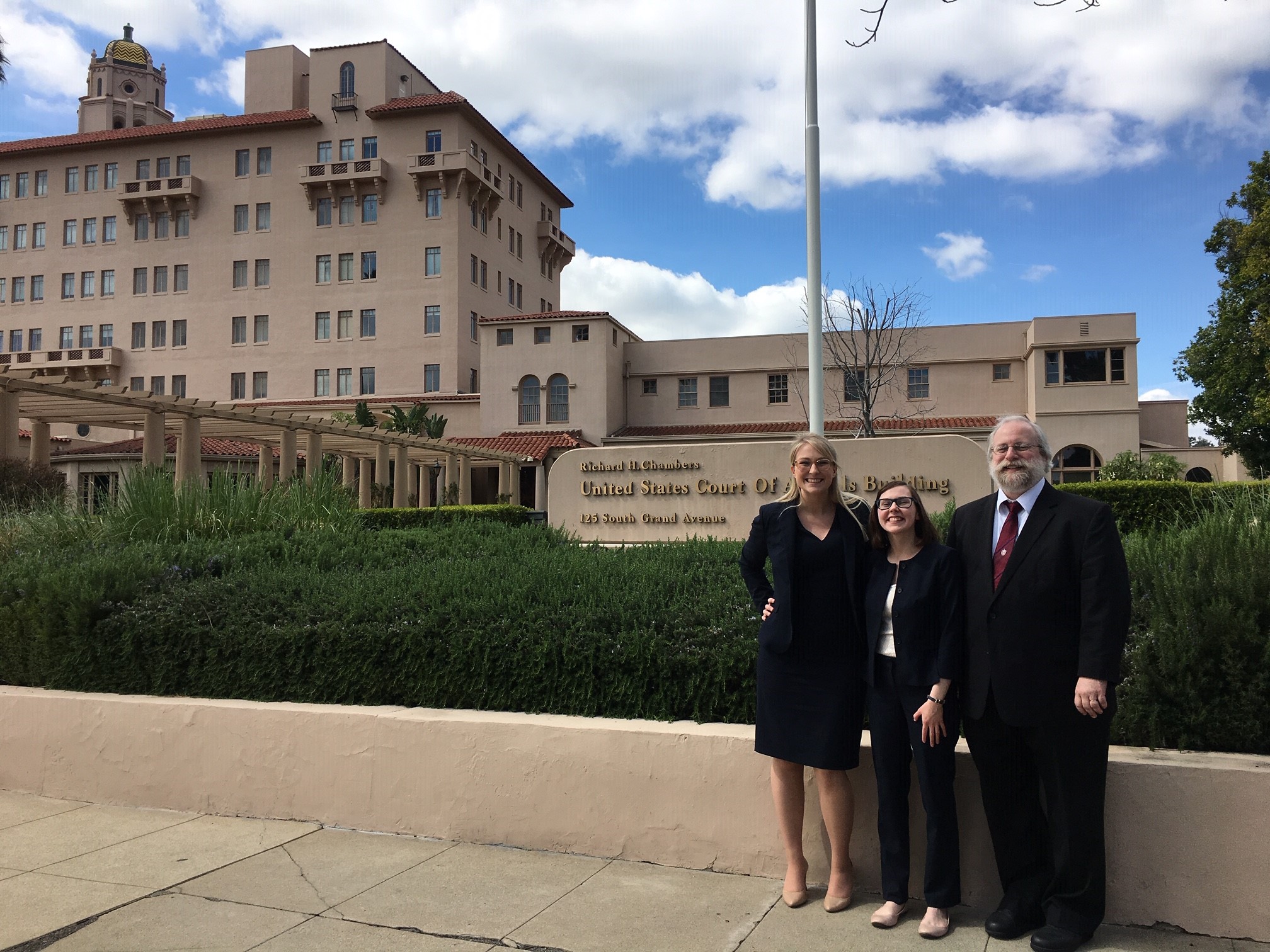For the sixth year in a row, two third-year law students and a professor from the University of St. Thomas Appellate Clinic have won an appeal they had briefed and argued before judges in the United States Court of Appeals for the 9th Circuit on behalf of a pro bono client. On July 19, the Court of Appeals ruled that a former prisoner presented a valid constitutional claim that federal prison officials had been deliberately indifferent to his serious medical condition. The case will now return to the district court for trial on both his medical malpractice claim against the federal government and his constitutional tort claims against the prison officials.
The case, Foy Chandler v. R. Phillip Guttierrez, et al., was argued on March 4 in Pasadena, California, by then-students Shana Tomenes and Samantha Hoefs, who worked on behalf of the school’s Appellate Clinic led by Professor Gregory Sisk.
Foy Chandler, a federal prisoner, suffered agonizing back pain, leaving him confined to his bunk and unable to move from his cell. But, Chandler contends, he was left without medical treatment or even food for days at a time. Despite urgent requests by Chandler, his cell-mate, and correctional officers for a medical response, medical professionals treated him as a nuisance rather than a patient. Only after Chandler was released and received emergency medical care was he diagnosed as suffering from a severe bone infection that was destroying his spine and that has left him with permanent pain and disabilities.
Chandler, acting pro se, brought claims in the U.S. District Court in Los Angeles alleging both medical malpractice and deliberate indifference to a serious medical need in violation of the Eighth Amendment of the U.S. Constitution. After the trial court rejected the government’s motion to dismiss the claims, the defendant federal officers filed an immediate appeal, preventing the case from going to trial.
On appeal, the St. Thomas Appellate Clinic contended that appellate jurisdiction was limited to the legal question whether the law clearly established that the defendant prison officials were obliged to respond to Chandler’s medical condition and provide proper nutrition. Ruling that the defendants could not challenge the factual basis for the claims before trial, the Court of Appeals found those facts showed the federal officers had acted in clear violation of Chandler’s constitutional rights. A dissenting judge agreed that the claims against the medical professionals should proceed to trial, but contended that the warden should have been dismissed from the lawsuit because he had limited and second-hand information about the situation.
The Appellate Clinic is a year-long course that charges students to study written and oral advocacy, appellate courts, appellate jurisdiction and the rules of appellate procedure. Clinical students represent a client pro bono under faculty supervision, briefing and arguing appellate cases on their behalf.







